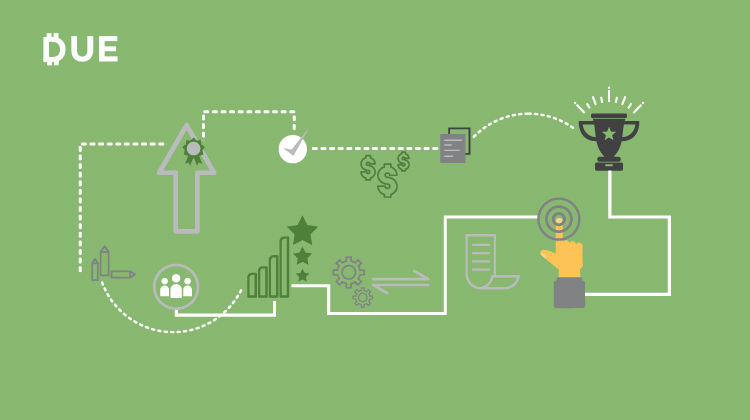One day during your morning commute you notice that one of your tires looks like it’s losing air. Instead of putting air in the tire, you go on with your daily routine. On your way to work, you have a blowout. If you had taken care of the car immediately, you probably wouldn’t be dealing with a flat tire on the side of the road. It’s kind of the same thing with motivation. When you feel motivation dropping.
Table of Contents
ToggleHow to Handle When You Feel Motivation Dropping
Why wait until you feel completed unmotivated to address the situation? Personally, it makes more sense to fill-up your motivation before it’s empty. And, these five steps can ensure that that happens.
1. Let it go.
This doesn’t mean giving-up on a task permanently. It just means that sometimes you need to take a step back and refocus.
For example, instead of blankly staring at a computer screen when trying to write, let it go. Go for a walk, watch a TedTalk, read, tidy-up your office. You could even call a friend, family member, or mentor for a couple of minutes to get your mood up. It is much easier to stay up than get back up when you are down.
Taking a quick breather is a surefire way to help you recharge and refocus when you’re motivation is dropping. It may sound counterproductive, but it’s been found that taking breaks can increase productivity and fuel creativity.
2. Improve your mood.
Sometimes we’re not motivated because we’re just not in the right mood. In fact, Daniel Akst, writes in Temptation: Finding Self-Control in an Age of Excess:
“So procrastination is a mood-management technique, albeit (like eating or taking drugs) a shortsighted one. But we’re most prone to it when we think it will actually help… Well, far and away the most procrastination occurs among the bad-mood students who believed their mood could be changed and who had access to fun distractions.”
Additionally, research has found that happy employees are also more productive.
Simply put, when you feel motivation lacking, increase your happiness by:
- Being kind and helping others.
- Getting off of social media.
- Spending time outside.
- Making sure that you get enough sleep.
- Finding meaning in both life and work.
Of course, those aren’t the only ways to improve your mood. Talking to a friend or watching a funny cat video can increase positive feelings, boost energy, and decrease negative feelings. Once you’re in a better mood, you’ll be better suited to overcome procrastination.
3. Develop resilience.
How often do you achieve those large, overarching goals? Chances are that you aren’t able to lose 30 pounds or finally write your eBook. For these type of goals you will need to do higher planning and preparing.
Don’t beat yourself. As Bonnie St. John and her husband Allen Haines explain in their book Micro Resilience, becoming resilient to these big things is futile. Instead, they suggests that you ask, “How can I be more resilient in the next hour?”
This is done through the micro-process. As explained in Forbes, “These are the skills that allow executives to make small mind and attitude adjustments hour by hour that result in major shifts over time.”
For instance, instead of saying you’re going to write an eBook, take baby steps that are more attainable. Focus on writing the introduction within the next hour.
St. John and Haines also state that learning resilience at the micro level can be accomplished by not multitasking and overreacting to emotional triggers. You should also develop a positive attitude and take care of your mind and body.
4. Think about what you’ve already achieved.
As you continue to take baby steps towards a goal, also reflect on what you’ve already achieved. As you write the next chapter of your book, think about the chapters you’re already written. This gives you a little confidence boost so that you can move forward.
Additionally, when we reflect on our success we’re more likely to want to celebrate and reward them. And science shows that rewards are responsible for three-quarters of why you do things.
5. Block out distractions and interruptions.
While distractions and interruptions can be beneficial, they can also hinder your productivity and motivation.
“Typically the majority of our time during the day is spent bouncing from project to project, connecting with colleagues and co-workers, answering emails on the phone, and generally getting distracted and interrupted,” says best-selling author time management specialist Jamie Novak.
“This leaves little time to move longer-term projects along and they are left on the back burner until the last minute. A lot of us don’t like to start a project unless we know we have the time to finish it, but we don’t often have a large block of uninterrupted time.”
If you want to become more productive then start “blocking off a short window of time removing distractions and interruptions before all the other tasks of the day get in the way.”
To further help you ignore distractions try using desktop apps like RescueTime or SelfControl. You can also listen to music, change your scenery, and set clear boundaries. Productivity hacks like batching and the Pomodoro Technique are also useful. Start with something smaller and manageable right now when you feel motivation dropping.
[Related: 3 Extraordinary individuals you can look up to for motivation]















